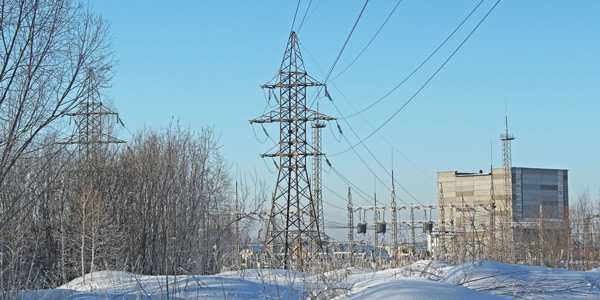By Robert Mullin
With winter looming, FERC last week adopted a rule that would double the “hard” offer cap for day-ahead and real-time markets to $2,000/MWh in every RTO and ISO.
Order 831 was a response to the 2013-2014 polar vortex, which caused natural gas price spikes that left some generators in the Northeast complaining they were unable to recover their costs (RM16-5).
The commission also noted that the $1,000/MWh offer caps effective in most RTOs could suppress LMPs below the marginal cost of production “given that recent history demonstrates that resource short-run marginal costs can exceed” that cap.
“We find that the currently effective offer caps may prevent a resource from recovering its short-run marginal costs, which could result in that resource operating at a loss,” the commission said in its decision to adopt the rule.

| © mg154 / 123RF Stock Photo
FERC last year approved a PJM measure to increase its offer cap to $2,000/MWh after RTO stakeholders voted overwhelmingly to approve the move. (See PJM Members OK 2,000/MWh Energy Market Offer Cap.)
The commission’s revised offer cap rule sets out three requirements:
- Incremental energy offers must be capped at the higher of $1,000/MWh or a resource’s cost-based energy offer, with $2,000/MWh being the maximum bid.
- An RTO must verify the costs underlying a resource’s bid above $1,000/MWh before that offer can be used to calculate the market-clearing LMP.
- All resources — regardless of type — will be eligible to submit cost-based incremental energy offers in excess of $1,000/MWh.
The final rule modifies FERC staff’s original proposal, which would have converted the current $1,000/MWh cap into a “soft” cap — without implementing a new hard cap. (See FERC Proposes Uniform Offer Caps Across RTOs.)
The commission said the absence of a hard cap could be problematic for RTOs and their market monitors, who might have only “imperfect information” ahead of the market clearing process to verify the short-run marginal costs for resources bidding above $1,000/MWh.
“While a hard cap may diminish the ability to fully address the shortcomings of current offer caps identified above in all circumstances, we find that, on balance, a hard cap is necessary to reasonably limit the adverse impact that any imperfect information during the verification process could have on LMPs,” the commission said.
Opposing the rule was CAISO, which said that the current $1,000/MWh ceiling far exceeds the highest cost-justified offer from any ISO resource. CAISO further contended that any natural gas-driven price spikes would be too infrequent and short-lived to warrant a change. ISO-NE said it saw no need to increase the cap, but it didn’t contest the rule change.
Market monitors for ISO-NE and SPP also protested, arguing that new sources of gas supply have provided sufficient stability in fuel prices in recent years.
The commission dismissed those contentions, pointing out that three RTOs — PJM, MISO and NYISO — had made previous filings to temporarily waive or change the level of their offer caps.
“The waiver requests and high natural gas costs experienced during the polar vortex, which could have caused some resources to experience costs above $1,000/MWh, demonstrate that the deficiencies of current offer caps, in particular the $1,000/MWh offer cap, are concrete rather than hypothetical.”
In its Nov. 17 presentation to the commission explaining the rule, FERC staff made the case for applying the change to all organized markets.
“Adopting the same offer cap structure in each RTO and ISO would avoid seams issues that could arise if offer caps differ materially across markets,” staff said.
The new rule will be effective 75 days after publication in the Federal Register.




